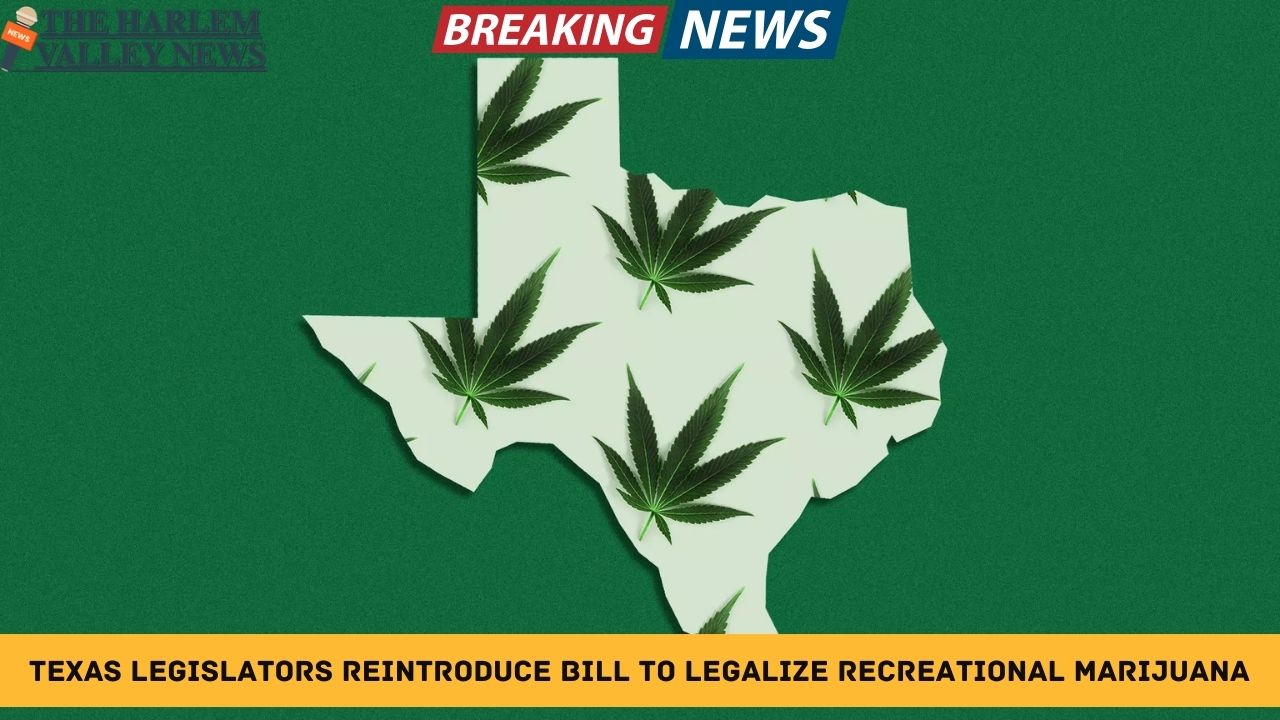Cannabis legalization continues to be one of the most significant and evolving legal topics in the United States. While many states have made strides in legalizing recreational cannabis, Texas, a state known for its conservative stance on drug laws, has seen growing momentum toward reform. Recently, Texas lawmakers have refiled a bicameral legislation aimed at legalizing recreational cannabis, signaling a pivotal moment in the state’s approach to cannabis policy. This article delves into the details of the legislation, the background of cannabis laws in Texas, potential impacts, and the broader context of legalization efforts.
Introduction to the Legislation
The newly refiled bill marks a coordinated effort in both chambers of the Texas Legislature—the House of Representatives and the Senate—to introduce a unified approach toward legalizing recreational cannabis. The bill proposes allowing adults within the state to possess and use cannabis recreationally, moving away from criminal penalties and toward regulated sales and consumption.
This bicameral approach is significant as it reflects a strategic push for consensus and accelerated legislative consideration. Both senators and representatives have collaborated to craft a bill that not only outlines possession limits but also establishes a framework for licensing cannabis businesses, taxation, and distribution, all while addressing public safety and social equity.
Background: Cannabis Laws in Texas
Historically, Texas has maintained strict cannabis laws. Possession of any amount was treated as a criminal offense with penalties ranging from fines to imprisonment. Medical cannabis has been available only in very limited forms and under stringent conditions, highlighting the state’s cautious progression.
However, over recent years, public opinion and political perspectives have shifted. Polls indicate increasing support among Texans for cannabis legalization, mirroring national trends. Several cities within Texas began decriminalizing or deprioritizing cannabis offenses, providing a localized precedent for change.
The state legislature previously considered bills related to cannabis decriminalization and limited medical cannabis expansion, but comprehensive recreational legalization has yet to be passed. The refiled bicameral bill is now the most comprehensive attempt to address the issue statewide.
Key Provisions of the Bicameral Legislation
Legal Possession and Use
The bill allows adults aged twenty-one and over to possess specified amounts of cannabis for personal use without facing criminal charges. It provides clarity on possession limits and establishes legal thresholds to distinguish between personal use and trafficking.
Regulation and Licensing
A regulatory agency or board is proposed to oversee the licensing of cannabis businesses, including cultivation, processing, distribution, and retail sales. The establishment of strict compliance standards aims to ensure consumer safety, prevent underage sales, and minimize illicit market activity.
Taxation and Revenue
The legislation introduces a framework for taxing cannabis sales, with revenues earmarked for public programs such as education, healthcare, and substance abuse treatment. This financial model aligns with other states that have successfully generated significant tax income from legalized cannabis.
Social Equity and Expungement
An important aspect of the bill is its focus on social equity. It proposes measures to support communities disproportionately affected by past cannabis prohibition through licensing preferences, grants, and expungement of certain cannabis-related criminal records. This provision seeks to promote justice and economic inclusion.
Impact on Law Enforcement and Public Safety
The bill addresses potential concerns about law enforcement and public safety by funding training programs and establishing clear rules for impaired driving enforcement. It encourages law enforcement agencies to refocus resources on more serious crimes.
Economic Implications for Texas
Legalizing recreational cannabis is expected to have a considerable economic impact in Texas, a state with a large population and expansive market potential. Estimates forecast the creation of thousands of jobs in agriculture, manufacturing, retail, and ancillary service industries. Additionally, tax revenues from cannabis sales could contribute hundreds of millions to state coffers annually once fully implemented.
Comparisons with Other States
Several states have paved the way with recreational cannabis legalization, offering valuable insights for Texas. States like Colorado and California have seen substantial economic benefits and have developed complex regulatory systems. Texas lawmakers have studied these models to tailor the legislation to fit the state’s unique social and political environment.
Public Opinion and Support
Recent surveys show that a majority of Texans favor some form of cannabis legalization or decriminalization. This increasing support reflects changing attitudes, particularly among younger voters, and underscores a growing recognition of the potential benefits of legalization, including criminal justice reform and economic opportunity.
Challenges and Opposition
Despite growing support, the bill faces opposition from various quarters, including some law enforcement groups, conservative political figures, and certain community organizations. Concerns often cited include fears about increased youth access, impaired driving, and societal impacts. These concerns have led to strong debates within the legislature and the public sphere.
Potential Timeline and Legislative Process
The bicameral filing initiates the formal legislative process. The bill must go through committees, debates, amendments, and votes in both chambers before potentially becoming law. Advocates are optimistic about its prospects but acknowledge that negotiation and compromise will be necessary to secure a majority.
Conclusion
The refiling of bicameral legislation to legalize recreational cannabis in Texas represents a landmark development in the state’s drug policy landscape. With a comprehensive proposal addressing possession, regulation, taxation, social equity, and public safety, this initiative could transform cannabis laws in Texas substantially. While challenges remain, the momentum for reform is clear, driven by evolving public opinion and a desire to harness economic and social benefits. Texas stands at a pivotal crossroads with the promise of a modernized approach to cannabis policy on the horizon.












Leave a Reply